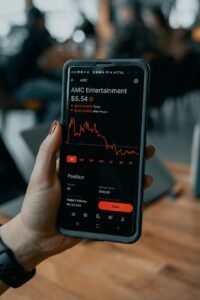Maximizing Profits: How to Choose the Right High Leverage Forex Broker
In the world of forex trading, leverage plays a crucial role in maximizing profits. It allows traders to control larger positions in the market with a smaller amount of capital. However, choosing the right high leverage forex broker is essential to ensure that traders can effectively utilize this tool without exposing themselves to unnecessary risks.
Leverage is essentially borrowed capital provided by the broker to amplify the potential returns on an investment. For example, if a trader has a leverage ratio of 1:100, they can control a position worth $100 for every $1 of their own capital. This means that even a small price movement can result in significant profits.
The first step in choosing the right high leverage forex broker is to understand the risks involved. While leverage can magnify profits, it can also lead to significant losses if not used responsibly. Therefore, it is crucial to choose a broker that provides high leverage options along with proper risk management tools and educational resources.
Regulation is another critical factor to consider when selecting a high leverage forex broker. Regulatory bodies such as the Financial Conduct Authority (FCA) in the UK or the National Futures Association (NFA) in the US ensure that brokers adhere to strict guidelines and maintain transparency in their operations. Trading with a regulated broker provides traders with a level of protection and assurance that their funds are secure.
In addition to regulation, traders should also consider the reputation and track record of the broker. Researching online reviews and testimonials can provide valuable insights into the broker’s reliability and customer satisfaction. A broker with a solid reputation not only ensures a safe trading environment but also demonstrates their commitment to customer support.
Trading platforms and tools offered by the broker are also important considerations. A user-friendly and intuitive trading platform can greatly enhance the trading experience. Advanced charting tools, real-time market data, and customizable indicators are features that can help traders make informed decisions and maximize their profits. Additionally, brokers that offer mobile trading platforms allow traders to access their accounts and execute trades on the go, ensuring flexibility and convenience.
Another crucial factor to consider is the range of available trading instruments. A diverse selection of currency pairs, commodities, indices, and stocks allows traders to diversify their portfolios and take advantage of various market opportunities. Additionally, brokers that offer access to global markets provide traders with the ability to profit from different economic conditions and geopolitical events.
When choosing a high leverage forex broker, it is important to assess the broker’s customer support services. Timely and efficient customer support is crucial for resolving any trading-related issues or technical difficulties. Live chat, email, and phone support should be readily available to ensure that traders can seek assistance whenever needed.
Furthermore, traders should carefully evaluate the broker’s fee structure. While high leverage brokers may offer competitive spreads, they may also charge additional commissions or fees. It is essential to understand the costs involved in trading, including deposit and withdrawal fees, to accurately assess the profitability of trades.
Finally, traders should consider the broker’s educational resources and research tools. A reputable high leverage forex broker will provide educational materials, webinars, and market analysis to help traders make informed decisions. These resources can be valuable for both novice and experienced traders, enabling them to enhance their trading skills and strategies.
In conclusion, choosing the right high leverage forex broker is crucial for maximizing profits while minimizing risks. Traders should consider factors such as regulation, reputation, trading platforms, available instruments, customer support, fee structure, and educational resources. By conducting thorough research and due diligence, traders can select a broker that aligns with their trading goals and provides a safe and conducive trading environment.





